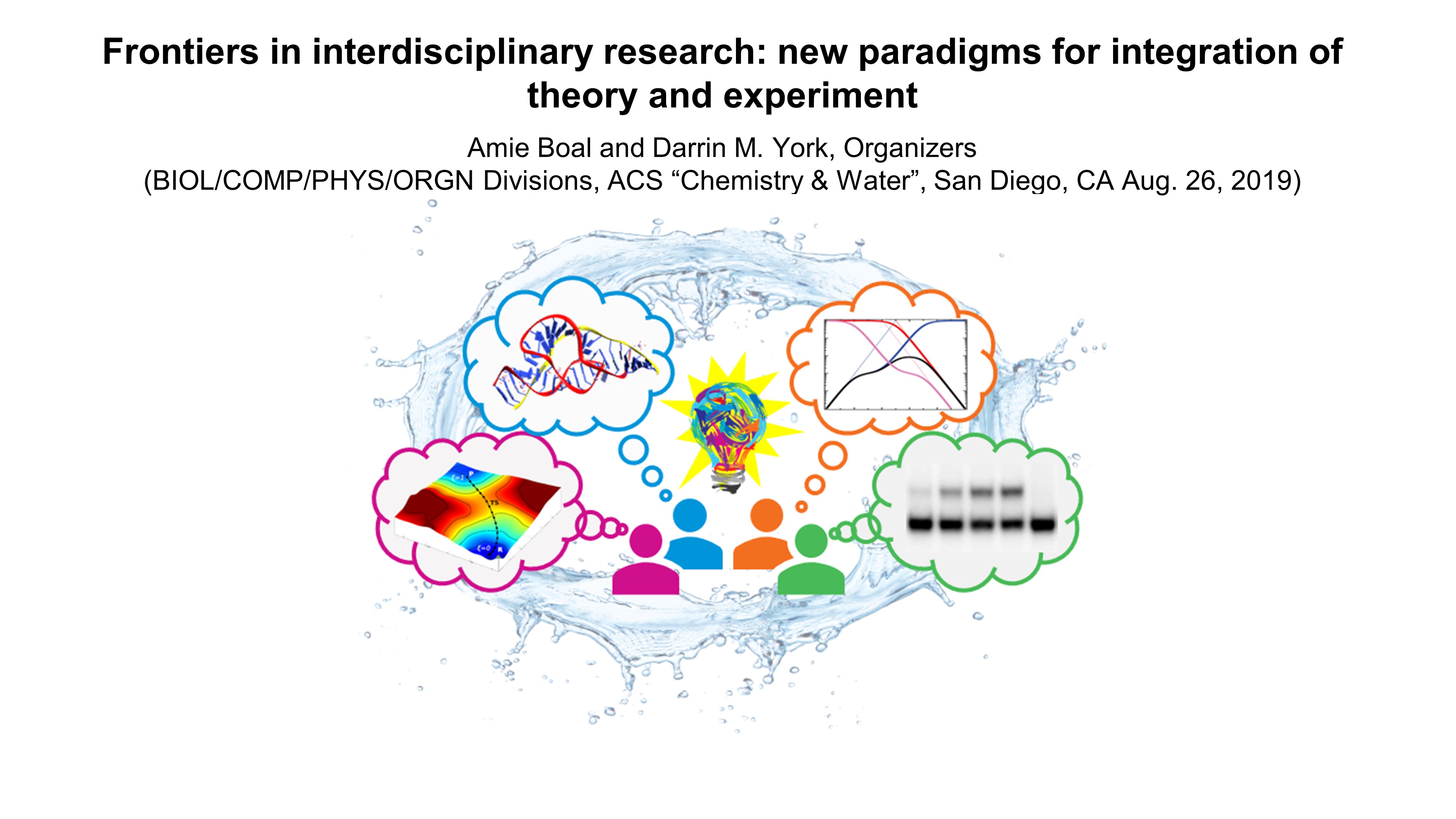| Darrin M. York |

Interdisciplinary research holds key advantages in addressing modern scientific grand challenges. Funding agencies and institutions recognize the growing need to promote research at the interface of traditional disciplines, and are creating incentives to engage in interdisciplinary research, education and training. However, building effective research strategies and collaborations that span disciplines is not easy. The gap between theory and experiment is one of the most difficult and most vital to bridge. This challenge is particularly important in advancing objectives in biocatalysis. Experiments provide essential information about structure and function, but due to the inability to directly observe transition states, are indirect probes of mechanism that require models of the transition state ensemble in order to interpret at the atomic level. Computational simulations provide a wealth of atomic-level information, but ultimately rely on inexact models that need to be validated experimentally. Hence, research efforts that integrate theory and experiment can lead to unique transformations in our predictive understanding of enzymatic catalysis, and enhance our ability to exploit enzymes for sustainable chemistry applications.
At the ACS National Meeting in San Diego, CA, the Division of Biological Chemistry will spearhead a unique symposium session format that showcases the forefront of interdisciplinary research. In a 1-day special symposium (Mon. Aug. 26) entitled "Frontiers in interdisciplinary research: new paradigms for integration of theory and experiment", co-organized by Amie Boal (Assistant Professor of Biochemistry and Molecular Biology, Penn State University) and Darrin York (Director, Laboratory for Biomolecular Simulation Research, Rutgers University), presentations will be made by interdisciplinary teams that bring to bear experiment and theory/computation to address important scientific challenges. The symposium will emphasize integrated research strategies that connect prediction, validation and data interpretation to yield new insights, and highlight examples of effective interdisciplinary collaborations.
The symposium is cross-listed in the ACS BIOL, COMP, PHYS and ORGN divisions, and brings together a stellar line-up of national and international award-winning speakers and leaders in the field from both academia and industry. The program is exceptionally balanced, having equal numbers of female and male, experimental and theoretical scientists. Among the list are ACS leaders, fellows, and award winners, and a broad spectrum of cross-disciplinary scientists ranging from well-established distinguished principal investigators and rising star junior faculty members, to promising early-career postdoctoral researchers. Presentation formats will be a combination of back-to-back experiment/theory and fully integrated team presentations by leaders in the field.Special effort will be made to engage session participants, and each session will conclude with an open-forum discussion of innovative approaches to interdisciplinary research involving all of the session speakers, and facilitated by a panel of selected graduate and postdoctoral students.
